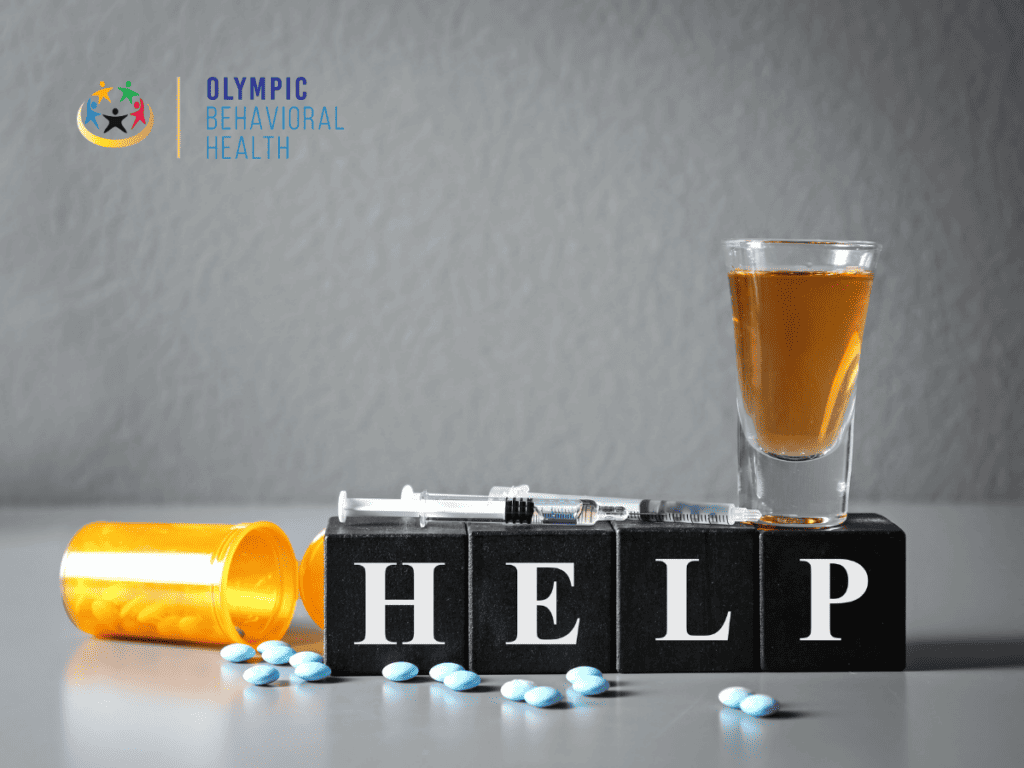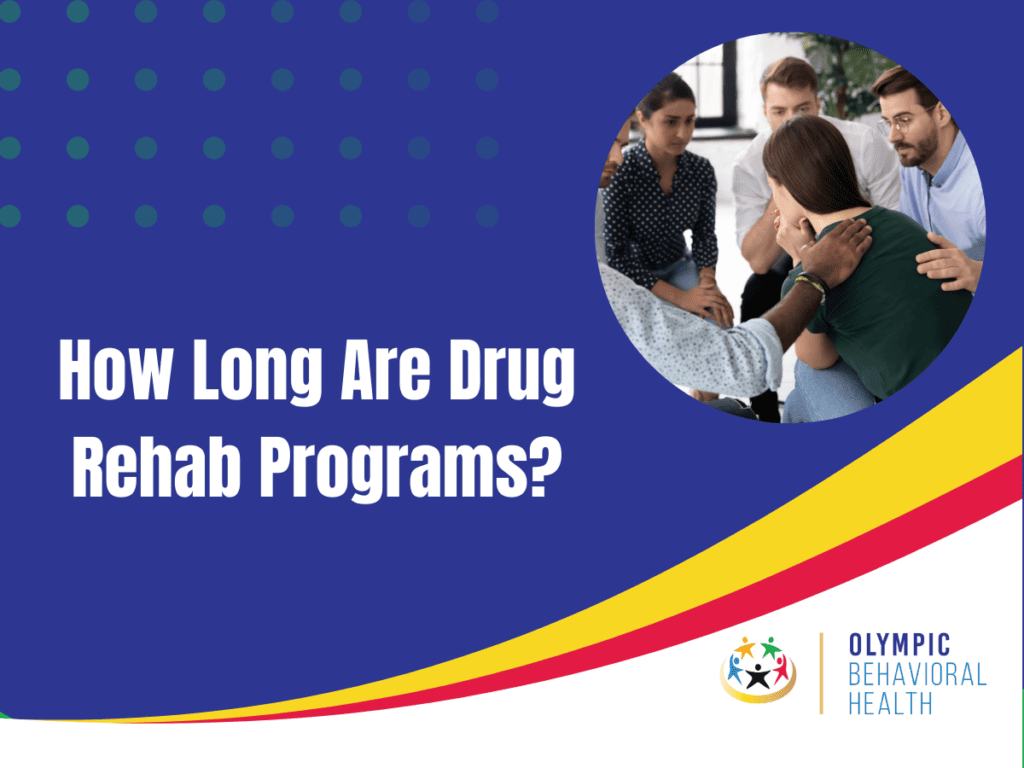Drug rehab programs vary in duration depending on various factors such as the severity of addiction, individual needs, treatment approach, and personal progress. The length of time required for drug rehab can span from a few weeks to several months or even longer. The primary goal of drug rehab is to help individuals recover from substance abuse, achieve sobriety, and develop the necessary skills and support systems to maintain long-term recovery. By tailoring treatment plans to meet individual needs, drug rehab programs can provide the necessary foundation for a successful and lasting recovery journey.
How Long Are Drug Rehab Programs
Starting the journey toward recovery from a substance use disorder can be a daunting task for people dealing with addiction. They may worry about being judged by society, dealing with financial consequences, and not knowing how long the rehabilitation process will take. It’s essential to recognize that every person’s struggle with addiction is unique, and there is no universal solution that works for everyone. A personalized approach is needed to address each person’s specific needs.
Secure and medically supervised detoxification, aimed at assisting patients through withdrawal symptoms, can span from a few days to several weeks, with an average duration of approximately 7 days. Following this initial phase, individuals may find that extended and immersive inpatient treatment becomes essential for ensuring sustained recovery. Various options exist with different lengths of stay, catering to the diverse needs of individuals seeking substance use treatment:
- Short-Term Rehab Programs
- 7+ Day Programs (Focused on Detoxification)
- 30-Day Programs (Standard length of stay)
- 60-Day Programs
- 90-Day Programs
- 6-Month, 1-Year, and 2-Year Rehab Programs
- Extended stay programs, such as sober living homes and residential programs
Choosing the right drug rehab program is crucial for long-term success. Research suggests that a minimum treatment duration of 3 months can be effective in achieving sobriety and building a solid foundation for continued recovery. Concerns about more extended treatment periods have been addressed by evidence showing that extended programs have the best outcomes in terms of sustained and meaningful results.
According to scientific research, it was discovered that despite variations in treatment programs, client profiles, follow-up intervals, data collection methods, and other factors, three studies reviewed found that high treatment success rates were observed among women who were in treatment for six months or more. The success rates ranged narrowly from 68% to 71% abstinent.
In this context, it’s crucial to understand the different treatment program lengths available and tailor them to individual needs. Individuals can choose a recovery path that best suits them by making informed decisions based on personal requirements.

What Impacts the Drug and Alcohol Rehab Length of Stay?
Factors influencing the duration of your stay encompass:
- Cost and Insurance Coverage: The extent to which your insurance covers treatment costs can influence the affordability of your stay, potentially limiting the duration of your treatment.
- Level of Care Required: The nature of your treatment, whether it involves detox, a residential inpatient program, or a more flexible outpatient program, can impact the overall length of your treatment.
- Other Considerations: Practical considerations such as childcare responsibilities and employment commitments may also play a role in determining a comfortable length of stay.
How Much Rehab Will Insurance Cover?
Insurance coverage for rehabilitation is subject to variations based on your plan. However, many insurance providers offer coverage for at least some rehabilitation costs. Notable providers that may contribute to rehab expenses include Blue Cross Blue Shield, Aetna, Anthem (Elevance Health in California and Nevada), Cigna, and Humana, among others. State-funded options, such as Medicaid programs, may also assist with rehab costs.
How’s The Process Of Getting Treatment?
The range of treatment programs available across the country reflects the diverse nature of substance use disorders. It is crucial to approach the treatment journey with realistic expectations. Addiction causes significant changes in the brain’s chemistry, and reversing these alterations requires an extended period. Therefore, the path to long-lasting sobriety is a process that may take time.
Recovery is an ongoing journey, similar to a marathon rather than a sprint. It is essential to understand this perspective to navigate the treatment process effectively. Patience and acceptance are essential in achieving sustainable results.
Each treatment program provides unique benefits, highlighting the importance of considering all available options.
What Are The Benefits Of A 30-Day Program?
Embarking on a 30-day treatment program is an excellent first step for many people unsure about the ideal duration for their treatment. It provides a practical starting point for addressing physical withdrawal symptoms and developing strategies for preventing relapse. Choosing a 30-day program allows individuals to assess the potential benefits of a more extended treatment program without feeling obligated to commit to it.
The 30-day duration is recommended as the shortest treatment period, making it easier for individuals to commit to. It is also often more affordable and covered by insurance companies. Furthermore, the initial 30-day period is ideal for creating a comprehensive treatment plan and establishing a post-treatment aftercare strategy.
What Are The Benefits Of A 60-Day Program?
An alternative and often beneficial timeframe for addiction treatment involves a 60-day program. Opting for a 60-day program offers the advantage of extended time and support during the treatment journey. This additional month allows for a more in-depth exploration of emotions and experiences that may underlie the substance use disorder.
This period is instrumental in constructing a robust sober support system, refining advanced relapse prevention techniques, achieving stability in mood and behaviors, and allowing for the necessary adjustments of any medications initiated during treatment. The 60-day duration ensures the thorough removal of substances from the system and facilitates the active cultivation of positive and healthy habits crucial for sustaining sobriety.
While insurance coverage for the entire 60-day program may vary, many treatment facilities accommodate payment plans, enabling individuals to make manageable monthly payments over time.

What Are The Benefits Of A 90-Day Program?
Although a 90-day program may seem overwhelming at first, it is crucial to understand that longer treatment durations, along with support, significantly improve the chances of maintaining sobriety after treatment. Research consistently shows that these programs have the highest success rates among available options.
The impact of a 90-day program is substantial, providing ample time for individuals to adjust to a drug- or alcohol-free life. This extended period is essential in strengthening sobriety skills and identifying potential triggers that could lead to relapse. While it is uncommon for individuals to choose a 90-day program on their first attempt at treatment, those who experience relapse after shorter programs often express regret for not selecting a more prolonged duration from the outset.
What Are The Benefits of Long-Term Rehab Programs?
Extended rehabilitation treatment can be highly beneficial for individuals battling substance use disorders. Research suggests that a minimum of 90 days in treatment increases the likelihood of maintaining sobriety, and opting for a 6- or 12-month rehab program can further improve these chances.
Participating in long-term treatment allows individuals to practice crucial coping skills and build their confidence in applying them after completing the program. This is essential in preventing relapse. Comprehensive treatment not only addresses substance use but also contributes to overall improvement in physical and mental health.
Connecting with other participants residing in the same facility and participating in group activities is an added advantage. These relationships can be beneficial when navigating challenges, especially when individuals are in similar stages of recovery.
In long-term rehabilitation programs, individuals can make changes at their own pace, understanding that recovery is a personal journey with varying timelines. Regular random drug testing in these facilities provides extra motivation for sobriety, reinforces the commitment to recovery, and introduces consequences in case of relapse.
Are The Timelines In Treatment Important?
Achieving a perfect treatment timeline is rare, as obstacles such as finances, family obligations, and work commitments are often obstacles. Although recommended program timelines exist, real-world factors can disrupt even the most carefully laid plans. That’s why it’s not unusual for individuals to undergo 30-45 days of residential treatment and then transition to a local community intensive outpatient program for an additional 45 days, effectively creating a 90-day treatment program. This approach offers flexibility towards the end of treatment, addressing barriers and providing support as individuals return home during early recovery.
Discussing this approach with the treatment team early in the process can help with effective aftercare planning, making a 90-day treatment strategy more feasible.

What Are The Extended Care Options?
After completing a 90-day program, sometimes individuals may require extra care, or they may prefer a more structured living arrangement while striving for long-term sobriety. In such cases, additional programs offer the option of immersing yourself in a sober living environment.
A sober living home provides an affordable, drug and alcohol-free setting where you can receive support from peers who are also navigating recovery. This step is particularly beneficial for those who may not feel fully prepared to re-enter the world and require additional support and structure to thrive during the early stages of recovery.
Get Help From Olympic Behavioral Health
Discover the best rehab programs tailored to your needs at Olympic Behavioral Health. Our personalized approach ensures effective and flexible recovery solutions. Choose excellence in your journey to wellness.
Although research shows that longer treatment durations tend to be more effective, factors such as financial constraints, family obligations, and job commitments may influence the ideal length of stay. Regardless of the chosen program duration, whether 30, 60, or 90 days or an extended program, each option presents unique benefits.
Therefore, adopting a realistic and patient approach throughout the treatment process is essential. Additionally, flexibility in transitioning from residential to outpatient programs is crucial in addressing real-world obstacles and supporting individuals in their early recovery phase when returning home.
It is essential to understand that during the treatment period, one should focus on the ultimate goal of recovery rather than being concerned about the duration of the process. If you are looking for a suitable treatment program, Olympic Behavioral Health can assist you in creating one that meets your specific needs.
Share This Post



